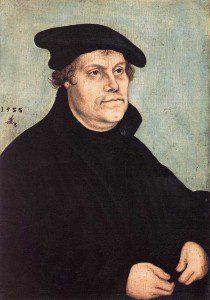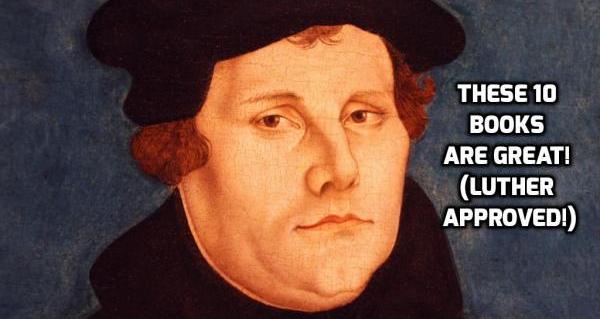My post on the “10 Books Every Seminary Graduate Should Read” seemed to strike a chord, but it also generated a few questions. One of the questions is, “what about the dead theologians” (my paraphrase)? There were a few in that list, but I thought it would be fun to go back in the annals of church history and offer up a list of 10 “best books,” or “most important books” for seminarians, up through the nineteenth century. I’m a Protestant Christian theologian, so admittedly the list leans that direction. In any case, here goes:
(1) The Republic by Plato. OK, technically, Plato is not a “theologian,” but in a way, he is. Christian theology would have been very different had Plato not lived and influenced Western thought in the metaphysical direction he helped shape it, for better or worse. I doubt we would have gotten the “doctrine of divine immutability,” for instance, without Plato’s philosophy. The Republic is Plato’s vision (via the figure Socrates) of justice and a just society. It’s really the beginning of sustained reflection in western ethical thought and it’s also the beginning, in a sense, of western academic theology–reflection on God (the Good) through deconstructing the mythology of the “gods.”
(2) Against Heresies by Irenaeus. Here we find one of the most important early theologians of the church dishing it out against the “gnostics,” and putting forward an important early Christian exposition of  doctrine which affirms the significance of creation against gnostic dualism. We also discover here Irenaeus’ concept of “recapitulation,” his way of understanding the parallelism of the two “Adams,” with the first Adam’s insufficiencies being completed, or summed up, in Christ the new Adam.
doctrine which affirms the significance of creation against gnostic dualism. We also discover here Irenaeus’ concept of “recapitulation,” his way of understanding the parallelism of the two “Adams,” with the first Adam’s insufficiencies being completed, or summed up, in Christ the new Adam.
(3) De Principiis by Origen. Origen is a famous heretic, or at least that’s how he’s commonly taught in conservative Christian seminaries. In this work he develops the concept of “apokatastasis,” or universal reconciliation, suggesting the ultimate and final restoration of all things and all people to God. Hell is real, but has a purifying effect (a purgatorial purpose). Origen is not alone in developing this hope, by the way–we see it in Gregory of Nyssa and numerous other theologians throughout history of the church. In any case, this work shows us some fascinating early church interpretations of Scripture and also evidences the Platonic influence (the always present relation between philosophy and theology).
(4) Confessions by Augustine. This is sometimes referred to as the first “modern” (so to speak) auto-biography. It’s a self-reflective “confession” of Augustine’s spiritual, intellectual, and theological journey. It’s long and boring in parts, obscure and frustrating in others, but rich, lively and pleasantly revealing in others. It also gives you a sense for how intellectual early medieval (or late Patristic) people thought and the questions that haunted them. I’ve used it for a church small group study before; it worked surprisingly well.
(5) An Exact Exposition of the Orthodox Faith by John of Damascus. What Augustine is to Protestant theology, and Aquinas to Roman Catholic theology, John of Damascus is to Eastern Orthodox theology. This can be dry reading at times, but the systematic rigor of this early scholastic piece of theology is fascinating to behold. Again, it’s interesting to see the import of philosophical concepts into theological speculation. Philosophy, Bible, theology, is a three-cord strand.
(6) The Interior Castle by Teresa of Avila. This Spanish nun and mystic had a profound influence on spiritual thought through her theological reflections on prayer, devotion, and the soul. The book images the soul as a “castle” with seven levels or “dwelling places/mansions.” The goal is to move higher up the castle (the soul) into union with God in contemplation, but involves various kinds of prayer and meditation.
(7) The Cloud of Unknowing by Anonymous.We don’t know who wrote this mystical text on prayer and contemplation, but it has served an important place in the tradition of “apophatic theology,” a theological approach based in experiential and relational knowing that embraces the “negative approach” to theology. God cannot be directly known by propositional attribution: “attributes” but by bending the heart in submission and reaching out in love.
( 8) The Bondage of the Will by Martin Luther. This work gives you a direct glimpse into the heat of the battle between Luther and his Catholic counterpart, Erasmus. It is much easier to understand the historic discord that marked the division between Luther and the Catholic theologians. It’s also much easier to grasp Luther’s insistence on the “theology of the cross,” through this work. His edginess and lack of manners is clearly on display, too, which might make the most sensitive readers want to side with Erasmus.
8) The Bondage of the Will by Martin Luther. This work gives you a direct glimpse into the heat of the battle between Luther and his Catholic counterpart, Erasmus. It is much easier to understand the historic discord that marked the division between Luther and the Catholic theologians. It’s also much easier to grasp Luther’s insistence on the “theology of the cross,” through this work. His edginess and lack of manners is clearly on display, too, which might make the most sensitive readers want to side with Erasmus.
(9) The Sickness Unto Death by Søren Kierkegaard. As a Kierkegaard scholar, to select only one text is a daunting task. I went with this one, however, because of the important role it has played in modern theology and because of the density and richness of both psychological insight and theological depth. Kierkegaard penetrates to the heart of the human condition and opens us up for analysis–and suggests a role for theology in assessing and dealing with that condition. Theological language begins to correspond to empirical reality, thanks to Kierkegaard’s influence.
(10) Letters and Papers from Prison by Dietrich Bonhoeffer. I don’t have to argue for Bonhoeffer’s significance in theology and ministry. This book provides a window into the thoughts of Bonhoeffer from behind the bars of the prison cell. His relationships, his values, his loves, his vision of the Christian life is there in vivid color. These are profound reflections on the state of Christianity and the church by a theologian in the midst of suffering and loss–but they retain a hopefulness for the future that should inspire us all to be a little bit more committed to our faith.










